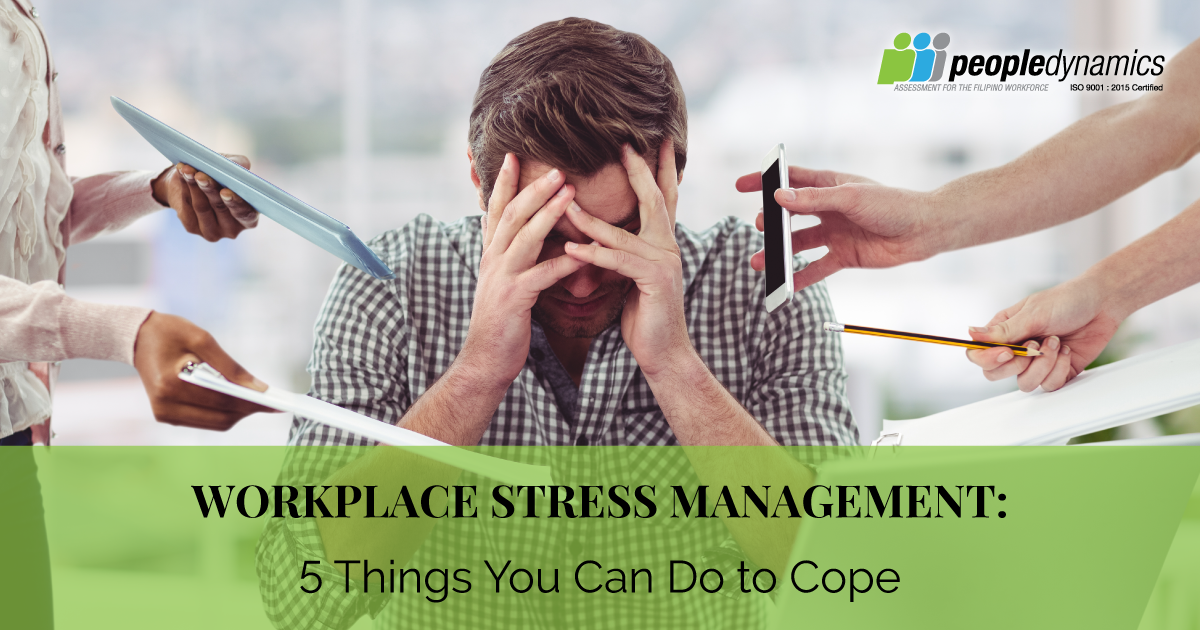Every and any job can have stressful elements—even if you love what you do! There are a lot of sources for workplace stress, with certain factors tending to go hand-in-hand in triggering you. Stress is normal, but when excessive and not managed carefully, it can interfere with your productivity and performance, physical and emotional health, and affect your relationships. Protect yourself from the bad effects of stress with these five workplace stress management tips!
5 Workplace Stress Management Tips
Know your stressors
Stressors are anything that causes the release of your stress hormones. And these are different for everybody. Some situations can be stressors for a majority of people such as natural calamities, but other situations that trigger you don’t mean that those will also trigger someone else.
So what’s the importance of knowing your stressors in workplace stress management? Simple: when you know something will cause a reaction, you will be able to control more your reaction to it. Think of it this way: let’s say that you have an allergy to something. Wouldn’t you take measures so that you will not be provoking it? If it’s food, of course, you won’t eat it. Or if you can’t avoid it, you’ll prepare medicine that will allow you to control your reactions. It’s the same with stressors. If you know that this situation will trigger you, try to avoid it. And if you can’t avoid it, manage how you react to it.
Make healthy choices
No matter how tempting it is, indulging yourself in vices such as smoking, drinking, or “stress-eating” will only relieve the effects temporarily. It doesn’t address the root cause or make it better for you and your body. To manage stress, you have to make healthy choices. One of the best and healthiest stress relievers is to exercise. It’s also important that you get enough sleep as poor and inadequate sleep can cause irritability and stress. Another thing that you could do is to eat a regular and well-balanced diet to make you feel better overall. And, if your organization has wellness programs, take advantage of them.
Establish boundaries
Because of how efficient communication is in this digital age, it’s easy to feel the pressure to be available for your job 24 hours a day. But while a perfect work-life balance may not be achievable, it’s still essential that you establish boundaries between your personal life and your work. This could be not checking your work email once you leave the office, or knowing when to leave the task you’re currently doing for tomorrow and not doing overtime just to finish it. Establishing boundaries between your work and home can reduce the potential of conflicts and stress that goes with it.
Recharge
When you’re gadgets are out of battery, you charge them. The same goes for you. When you’re experiencing burnout or stress, you need time to replenish your energy—to recharge. You have leaves for a reason. Take the time off to relax and unwind in a way that fits your needs and preferences, disconnect from your work and any other work-related activities, and reinvigorate your depleted energy. And if you can’t take time off, get a quick boost by doing something you love for a short while. This can be treating yourself to a movie or having a massage.
Get support
Sometimes, all you need is company. Accepting help from your trusted friends and family members can help you cope better. Stress can be the result of piled up negative reactions to situations, clouding your judgment and preventing you from seeing things clearly. Talking to someone can help you put things into perspective and help you solve your problems. If needed, you could also seek the help of counselors and mental health professionals.
Don’t let stress interfere with your well-being. The demands from your job can put pressure on your life, but it doesn’t mean that you have to sacrifice your health for it. Remember that to perform your best, your body and your mind also have to be in the best condition.




